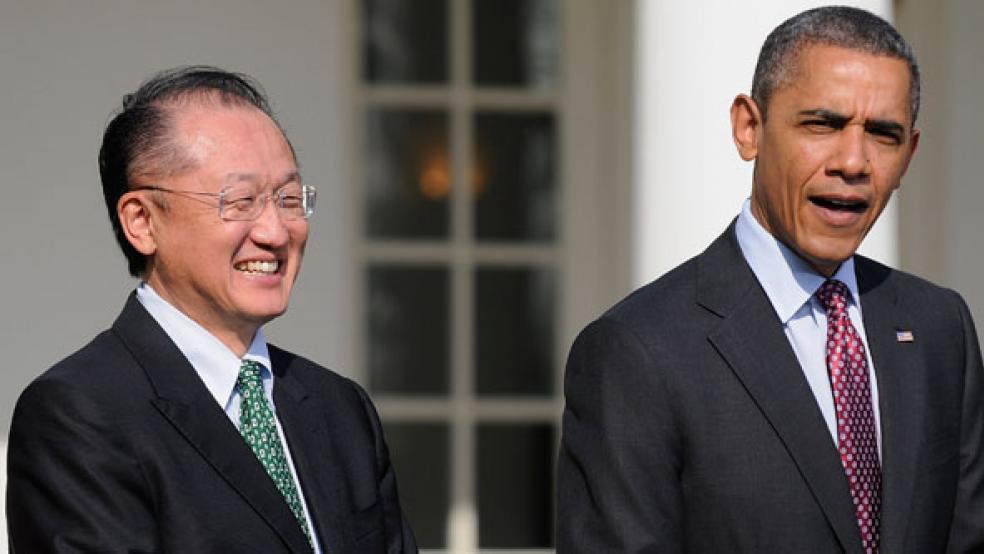President Obama’s surprise nomination of Dartmouth president Jim Yong Kim to run the World Bank ratifies the quiet but noticeable shift in global development priorities. Where the world’s biggest lender to developing countries once focused almost exclusively on infrastructure projects and economic development, it now sees human development as crucial to improving the economic performance of less developed countries.
That’s a trend that will only become more pronounced in the years ahead should Kim, a physician, anthropologist and global health expert who co-founded Partners in Health (celebrated in Tracy Kidder’s “Mountains Beyond Mountains”), win the race to become the next World Bank president. The MacArthur Foundation “genius” awardee pioneered programs for treating multi-drug resistant tuberculosis in the developing world and more recently, while at Dartmouth, launched a Center for Health Care Delivery Science.
“We economists should have been paying greater attention to public health all the way through,” Colin Bradford, a senior fellow at the Brookings Institution who follows World Bank politics closely, said. “A person can’t contribute to public life and the economy if she or he isn’t healthy.”
The process began in 2000 with the United Nations adopting the Millenium Development Goals, which established eight priorities for halving extreme poverty among the world’s poorest two billion people by 2015. Three of those goals involved public health: improving maternal health, reducing infant mortality, and improving access to reproductive services.
Over the past three years, the World Bank finally got on board by more than quadrupling its loans and grants for health and other social services to $6.7 billion a year, a bank spokesman said. That raised loans to the once-overlooked human development sector to nearly a sixth of its portfolio.
However, the shift in priorities isn’t the only change underway at the bank, which makes Kim’s nomination not yet a done deal. The U.S., the bank’s largest donor, has traditionally named the president. They’ve almost always been prominent economists, bankers or high-ranking officials well-versed in international politics and economics.
Names bandied about this year before Obama’s Kim surprise included former Treasury Secretary and economist Lawrence Summers, Columbia economist Jeffrey Sachs (who waged a public campaign for the job), and Secretary of State Hillary Clinton, who declined to pursue the post. Sachs issued a statement Friday backing Kim for the job.
But developing countries, many of which are growing substantially faster than post-financial meltdown advanced economies, have become much more assertive about naming one of their own in recent years. When Robert Zoelick, a top trade official before his appointment by President George W. Bush, announced his retirement a month ago, Latin American countries immediately began talking up Columbia University professor Jose Antonio Ocampo, a former Colombian finance minister and central bank governor. Some African nations touted Ngozi Okonjo-Iweala, a former Nigerian finance minister.
A wide swath of development experts have been pushing for a more open and democratic process, not one based on contributions. Kim’s job now will be to make the rounds of global finance ministers to convince them before the World Bank’s annual meeting on April 21-22 in Washington that a health expert is the right man for the job. “If you don’t have the finance ministers involved, you can’t have health reform,” Brookings’ Bradford said.




